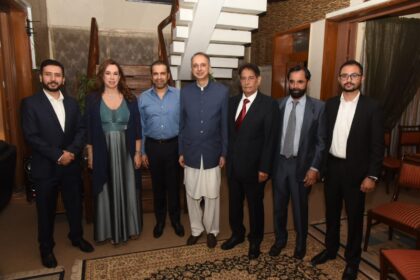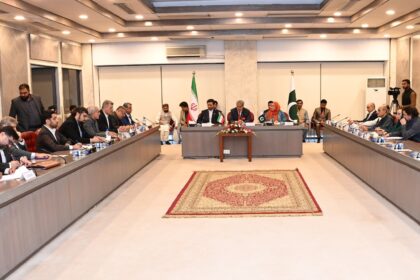Pakistan and Iran have reached a series of landmark agreements aimed at strengthening agricultural cooperation and boosting bilateral trade, following a high-level ministerial meeting in Tehran. The agreements are set to open new export opportunities for Pakistani rice, mangoes, livestock, corn, and other agricultural products, while also enhancing scientific collaboration and streamlining trade processes between the two neighboring countries.
Federal Minister for National Food Security and Research Rana Tanveer Hussain led the Pakistani delegation at the meeting. The session, jointly chaired by Iran’s Minister of Agriculture Gholamreza Nowruzi, brought together senior representatives from both countries’ key ministries, research bodies, and trade officials.
A major outcome of the talks was Iran’s agreement to obtain a significant portion of its rice imports from Pakistan. Both government and private sector importers in Iran will now increasingly rely on Pakistani rice, providing Pakistan with a stable and sustained export market. The issue of barriers that have long hindered Pakistani mango exports, such as import permits and foreign exchange availability, was also addressed. Iranian authorities offered concrete assurances that these challenges will be resolved promptly, allowing for a substantial increase in Pakistani mango shipments to Iran.
Attention was also given to Pakistan’s livestock and meat sectors. Iran agreed to source around sixty percent of its meat imports from Pakistan. Additionally, the two countries reached an understanding on large-scale Iranian imports of Pakistani corn, with a commitment to quickly overcome any technical and operational hurdles involved.
Scientific cooperation in agriculture was identified as an essential area for future growth. Closer collaboration was agreed upon between the Pakistan Agricultural Research Council (PARC) and Iranian research institutions. This partnership will focus on key areas such as crop development, livestock breeding, water management, and wider innovation to benefit farmers.
To further facilitate agricultural trade, the two sides agreed to expedite customs clearance procedures, improve warehouse and cold chain systems, and upgrade border infrastructure. These measures aim to ensure that perishable goods reach markets in a timely and high-quality condition. Progress was also made toward a Free Trade Agreement framework to support the long-term expansion of agricultural trade between Pakistan and Iran.
In order to oversee the implementation of these historic agreements, a joint committee on agricultural cooperation has been formally established. This committee will meet every six months to review progress, address emerging issues, and maintain the momentum of collaboration.
At the conclusion of the meeting, Minister Rana Tanveer Hussain expressed gratitude to the Iranian government for its constructive approach and warm hospitality. He emphasized Pakistan’s commitment to being a reliable partner in food security and agricultural development, in line with Prime Minister Shehbaz Sharif’s vision of strengthening ties with neighboring countries. He also formally invited Minister Nowruzi to visit Pakistan to further consolidate these positive developments.
The session ended with the signing of a joint declaration, signifying the beginning of a new era of Pakistan-Iran agricultural and trade partnership and the shared determination to implement the agreements reached.











